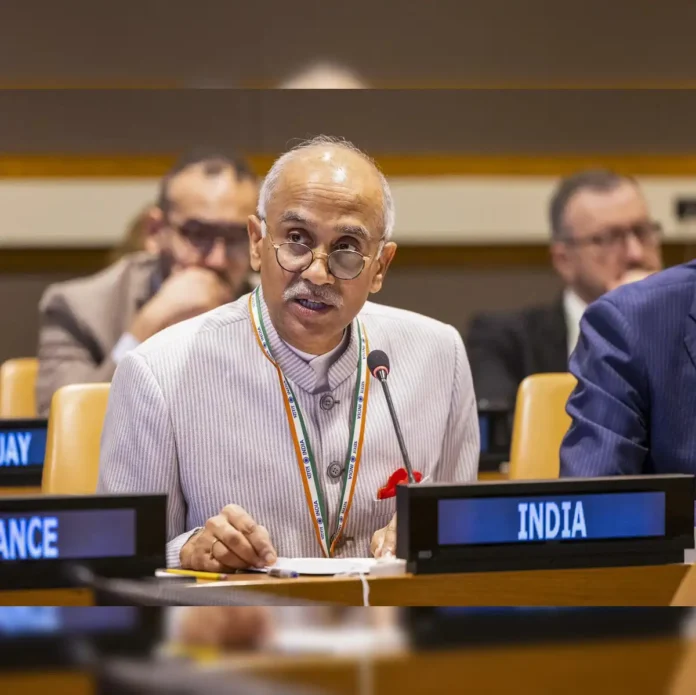India has called on the international community to stop terrorist organizations, including Lashkar-e-Tayyiba and Jaish-e-Mohammed, from exploiting Afghan territory for their activities. This plea came during a UN Security Council meeting on Wednesday.
Ambassador Parvathaneni Harish, India’s Permanent Representative to the UN, urged a coordinated effort to ensure that entities labeled as terrorists by the UN Security Council, including ISIL and Al-Qaeda, do not use Afghanistan for their malicious aims.
“The international community must work together to prevent these designated entities and their facilitators from exploiting Afghanistan,” he stated, clearly pointing towards countries that harbor such groups, particularly Pakistan.
India’s Commitment to Afghan Stability
Delivering his remarks at the UN meeting, Ambassador Harish underlined India’s deep historical relationship with Afghanistan, emphasizing the country’s paramount interest in establishing peace and stability in the war-torn region.
“We actively engage with all relevant parties to foster peace, stability, and development in Afghanistan,” he said. India has shown its commitment through participation in various UN discussions and forums aimed at fostering collaboration.
Highlighting Humanitarian Aid Efforts
In addition to security concerns, Harish emphasized the humanitarian crisis Afghanistan faces. He mentioned India’s swift response to the recent earthquake, showcasing the delivery of 1,000 family tents and 15 tonnes of food supplies to affected areas.
“Compassion and assistance are essential for millions suffering from poverty and hunger,” he remarked. India has committed to ongoing support, dispatching 21 additional tonnes of essential relief materials, including medicines and hygiene kits.
Addressing Development Needs
Harish outlined that India has supplied around 50,000 tonnes of wheat and substantial medical assistance since the Taliban took control of Kabul in August 2021. This aid, he stated, aligns with India’s non-negotiable commitment to meeting the developmental needs of the Afghan people.
With a focus on sustainable aid, India has partnered with the UN Office on Drugs and Crime, providing vital support for drug rehabilitation programs, particularly aimed at women. “Our developmental commitment includes over 500 partnership projects across Afghanistan,” Harish highlighted.
Conclusion: The Urgency for a Coordinated Approach
India’s stance reinforces the need for a fresh, nuanced approach to Afghanistan’s unique challenges. Harish warned against a “business as usual” mentality, calling for innovative strategies that can genuinely benefit the Afghan populace.
As Afghanistan continues its recovery journey, the call for international collaboration remains crucial. “Addressing the post-conflict environment requires more than punitive measures; it demands a collective commitment to lasting stability and development,” he concluded.



